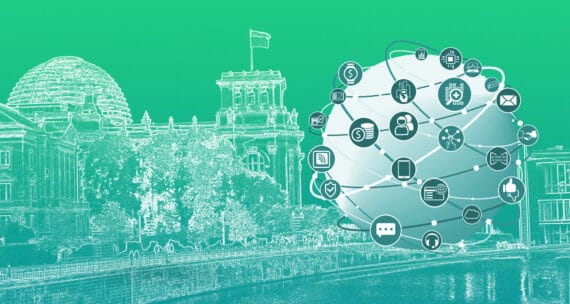Supply Chain Legislation
A possible supply chain law is currently being discussed in Germany. This would be a so-called due diligence law. There is disagreement among the ministers about the exact draft law. This law is intended to ensure the observance of human rights and environmental standards throughout the entire supply chain (production to delivery) of goods, i.e. clothing.
Who is liable for violated human rights?
Specifically, companies should be held liable for violations of the law, even if they tolerating human rights violations and / or environmental damage.
Aid agencies, associations and bishops are calling for a precise draft law and a quick agreement. Also, according to a survey from September 2020 by Infratest dimap, about three quarters of the people questioned are in favor of such a law. An initiative of various organizations collected 222,222 signatures for this law in September 2020.
What should a supply chain law achieve?
The existing problems are both clear and multifaceted. In the worst case, people die, e.g. due to safety deficiencies. In addition the environment is severely damaged, for example by contamination of groundwater. Child labor and too low wages are other major problems.
Surveys show that only around 20 percent of the companies based in Germany comply with an existing action plan, the “National Business and Human Rights Action Plan”. From this survey it can be concluded that a legal framework is needed.
In most cases, it is not possible to fully verify a company’s supply chain. Customers, or rather the entire market, simply have to trust the seller and the manufacturer these days.
How realistic is a supply chain law?
It is questionable how the government intends to track the supply chains of the many companies after the introduction of the law. Company officials are costly, cumbersome and still not fully trustworthy. This is where technologies that transparently and immutably display and store the resulting data in the supply chain would make sense.
Blockchain technology makes this possible through decentralized storage. However, the disadvantages of most blockchain solutions are the high energy costs and transaction fees. The Tangle from IOTA is a further development of the existing blockchain concepts. One of the things IOTA is working on is being able to closely control supply chains.
Transparency can help companies improve their image. Following the approach “trust is good, control is better”. For the industry and probably the SMEs, the handling of the CO2 tax is a challenge. With Deposy’s Product ID, CO2 emissions can be calculated by neutral bodies such as universities and secured in an unfalsifiable decentralized manner.
What do you think of the Supply Chain Act?
Oliver Hanstein asked Nico Korte this in December 2020. Nico Korte comes from the Ruhr area and has worked nationally and internationally as a managing director of large companies. The exact wording is no longer known, but Mr. Korte clearly expressed his concern about a bureaucratic monster. Apart from the high financial and organizational effort, he did not consider it technically feasible. When Oliver Hanstein mentioned Blockchain he said “Yes, with Blockchain it can work”.
The worries about increased operating costs and additional bureaucratic effort can be put into perspective through discourse and technical clarification. Blockchain is currently the only technology that has the necessary features.
The latest state of the art is not known to many in politics and business. Do you want to learn more about it?
What is the next step?
As there is no official draft yet, it remains to be seen whether the introduction of a supply chain law will be pursued vigorously or whether time will pass before it is implemented. Fact is we will stand or fall with our values. If we can’t act according to our core values, the human rights, who can we expect to follow our lead?
It is also unclear what penalties companies will face if they fail to comply with the future law. At the very least, it would be conceivable to impose severe fines and also possible sanctions in the form of exclusion from public procurement and state subsidies.
Authors
This article was written by Loris Puhlmann and Oliver Hanstein. Loris is intern at Deposy as part of his academic degree.
Photo of the Reichstag building by Photonstory.
